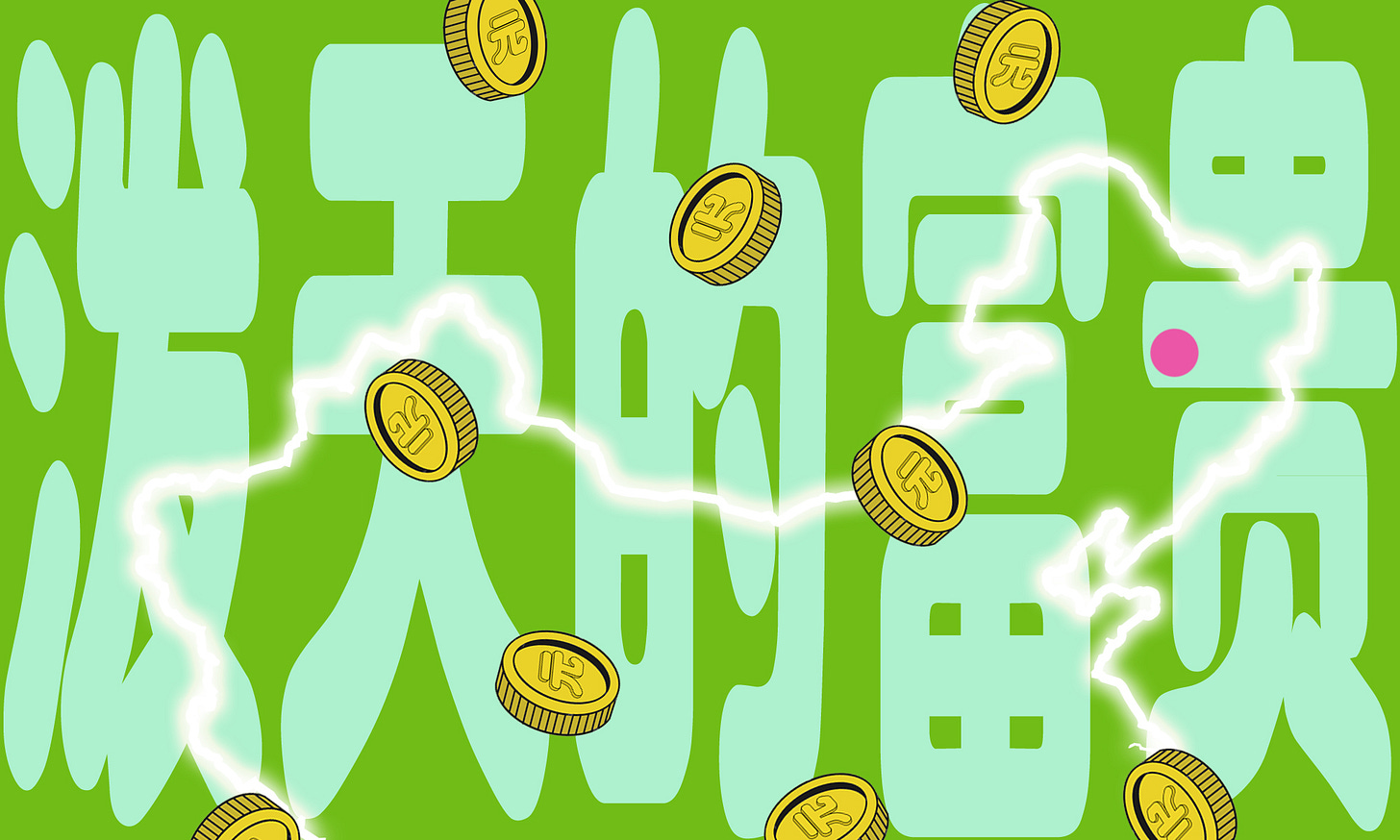"A flood of unexpected wealth" — Phrase of the Week
Cities in China are trying to replicate the viral success of Harbin. But it’s not easy.
Our Phrase of the Week is: A flood of unexpected wealth (泼天的富贵 pōtiān de fùguì).
The context
Harbin has been one of the early marketing success stories of China in 2024.
The capital of Heilongjiang province has welcomed huge numbers of tourists in recent weeks.
They are heading to the northern city to see its famed International Ice and Snow Festival (哈尔滨国际冰雪节).
The festival first began in 1963, and is now the largest of its kind in the world. But this year the attention and excitement on social media, as well as the number of domestic tourists visiting the city, has hit new highs.
According to official data, during the three-day New Year holiday in January, the southern city of Sanya 三亚 received a total of 563,300 tourists, generating revenue of over 1 billion yuan. Harbin welcomed over 3 million tourists in the same period generating nearly 6 billion yuan in tourism revenues, five times that of its southern competitor.
This sudden hype follows the success of another northern city last summer. Shandong's Zībó 淄博 became an overnight sensation due to the viral success of its BBQ (淄博烧烤), which led to thousands of tourists flocking to the city in May last year.
Other cities and provinces in China are looking to replicate the success of Harbin and Zibo.
Results are mixed:
Seeing Harbin being hit by the "flood of wealth," many cities across the country have followed suit, hoping to get a slice of the pie. But some controversies and even doubts have also been voiced, with some even sending a plea - "Local cultural and tourism bureaus, please stop coming up with outrageous ideas."
眼看着哈尔滨被“泼天的富贵”砸中,全国多地城市也跟风抄起了作业,希冀分一杯羹。但火了之后,一些争议乃至质疑声也开始出现,甚至有声音指出——“求各地文旅局不要瞎折腾了”。
Yǎnkàn zhe Hā'ěrbīn bèi “pōtiān de fùguì” zá zhòng, quánguó duōdì chéngshì yě gēnfēng chāo qǐle zuòyè, xījì fēn yìbēigēng. Dàn huǒ le zhīhòu, yìxiē zhēngyì nǎizhì zhìyíshēng yě kāishǐ chūxiàn, shènzhì yǒu shēngyīn zhǐchū——“qiú gèdì wénlǚjú búyào xiāzhēteng le”.
And with that, we have our Phrase of the Week!
What it means
"A flood of unexpected wealth" is a phrase that directly translates as "incomparable wealth, power, and status that floods the heavens" (泼天的富贵). The first two characters, pōtiān 泼天, carry the meaning of “a huge amount of.”
The origin of this expression is not known. But the most likely source is Zhuang Zhou Meng 庄周梦, a play written during the Yuan dynasty by Shǐjiǔ Jìngxiān 史九敬先.
The full passage is:
Fortune and fame are meaningless. What is the use of boundless wealth?
浮利浮名总是虚,泼天富贵待何如。
Fúlì fúmíng zǒng shì xū, pōtiān fùguì dài hérú.
The phrase has taken on a new meaning since last year, and was one of our top buzzwords of 2023.
It gained popularity following livestream ecommerce star Li Jiaqi’s 李佳琦 “eyebrow pencil pricing incident” in September, when he told a viewer to work harder to afford the 79 yuan product.
In the fall out, Chinese brands saw an opportunity, creating product combos priced at 79 yuan. Bee and Flower 蜂花, a shampoo brand, sold extremely well using this strategy. On grabbing 79 yuan deals, netizens joked:
"This enormous wealth has finally come to me!"
这波泼天富贵轮到我了。
Zhè bō pōtiān fùguì lúndào wǒ le.
It’s poking fun at Li Jiaqi, highlighting successful brands, and expresses the feeling of "winning while lying down" (躺赢), gaining increased attention, and additional revenue.
Since then, the phrase has become common, describing brands, companies, and even entire cities, which have unexpectedly benefited from high volumes of online traffic from another situation, like a social media storm in the case of the Li Jiaiq and Bee Flower.
For China's tourist destinations, they hope to create enough excitement online, replicating Harbin’s virality and tourism success.
Andrew Methven is the author of Slow Chinese 每周漫闻, a resource to help learners of Chinese maintain and improve their language skills, and keep on top of the latest language trends in China. Read more.



